Creation Myths
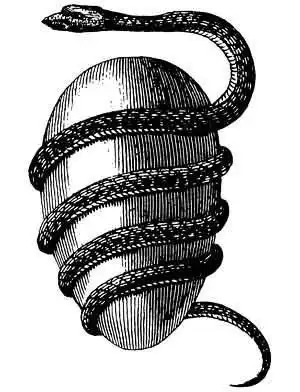
Stories about How the World Began
Creation myths are stories about the birth of the world. They exist in almost all cultures and reveal how people in ancient times speculated about how the world may have emerged. Creation stories were their kind of cosmological research, albeit of a very speculative nature.
Therefore, the creation myths reveal a lot about the thoughts of human beings in the very distant past — how they saw the world and tried to understand it. Since their minds were not very different from ours, their myths also teach us a lot about ourselves.
by Stefan Stenudd
This book examines Jungian theories on myth and religion, from Carl G. Jung to Jordan B. Peterson. Click the image to see the book at Amazon (paid link).
by Stefan Stenudd
This book examines Freudian theories on myth and religion, from Sigmund Freud to Erich Fromm. Click the image to see the book at Amazon (paid link).
|
How stories of the beginning might have begun. An introduction in depth to my ongoing research on creation myths, where I speculate about how the myths emerged at the dawn of human civilization and what shaped them.
Creations stories have appeared in just about every culture and mythological tradition. They differ tremendously, but also have several patterns and ingredients in common.
These similarities can be traced down to how human speculations about the origin of the world were likely to have started. Also, many similarities between creation myths have to do with the narrative, the rules of telling a story — especially one dependent on oral tradition. Click the header to read about it.
The Bible begins with two separate creation stories, differing significantly from one another — Genesis 1 and 2. Genesis 1 is the first and probably the oldest one. In this text I discuss how to analyze and understand the myth, especially the cosmology it indicates.
I also discuss some of the Genesis commentaries made by St. Augustine and Martin Luther, who both contributed to shed light on how the Bible was perceived in the past. Click the header to read about it.
One of the oldest creation myths preserved in its ancient form is Enuma Elish, the Babylonian creation story. Here I write at some length about its content and how to interpret it, especially its introductory part in which the world is created and the gods have their initial battle for sovereignity.
It is a theme that can be recognized in many other creation myths. In Enuma Elish, the babylonian god Marduk defeats the gods of old, inherited from neighboring cultures, including the divine couple making the world appear when they join. Click the header to read about it.
Every creation myth wrestles with the same problem as science does, when it comes to how the world began: What was before it?
Rig Veda, the ancient collection of hymns from India, also speculates about it — with thoughts that are perfectly relevant to us today as well. It's in the famous hymn Rig Veda 10:129, which ends in what almost seems like a joke. Click the header to read about it.
The Xingu Indians in Brazil seem not to have a myth about the world creation, or it has not yet been discovered by the anthropologists. But they do have other emergence myths. Here is the one about the birth of man, which is quite a sad story.
Click the header to read about it.
The recurring mythological symbols and their meanings. Myths are stories, and stories have characters. In the case of myths they often represent much more than a single person doing this or that at a whim or from some basic human need. They are not just types, but archetypes.
Click the header to read about it.
How to understand and explain myth and fable? Here are the major theories through the centuries about the meanings of mythology.
Click the header to read about it.
The basic patterns and structures of myths in general, and creation myths in particular. Discussion on what constitutes a myth and what the rules are for its form and content. Six criteria are used to decide what is and what is not a myth, and these criteria also define the necessary structure of it.
There are two kinds of myth: explanatory (like creation myths) and adventures (mainly hero stories). As for the former, there are additional rules regarding dramaturgy and time-space dimensions. Click the header to read about it.
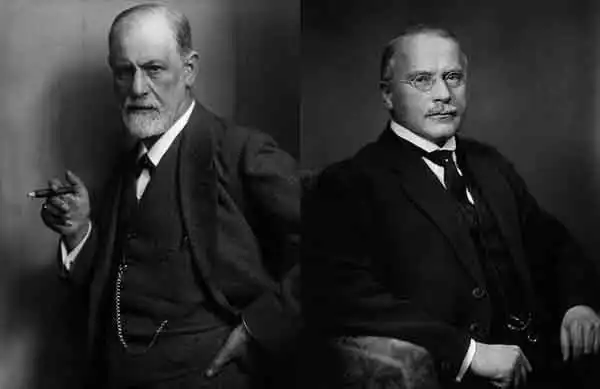
Sigmund Freud (left) and Carl G. Jung.
Texts presenting and critically examining Sigmund Freud and nine prominent Freudians concerning their theories about mythology and religion. These texts are on my personal website stenudd.com.
Click the header to go there.
Texts presenting and critically examining Carl G. Jung, Joseph Campbell, Jordan B. Peterson, and other prominent Jungians concerning their theories about mythology and religion. These texts are on my personal website stenudd.com.
Click the header to go there.
Introduction to the nature of creation myths, their structure and the thoughts behind them. This is a short article explaining my perspectives on creation myths, their structure, meaning, and what can be learned from them about human thinking in the distant past as well as the present. The text is on my personal website stenudd.com.
Click the header to go there.
Stefan Stenudd
Some of My Books:
Click the image to see the book at Amazon (paid link).
The Greek philosophers and what they thought about cosmology, myth, and the gods.
Qi, prana, spirit, ruach, pneuma, and many other life forces around the world explained and compared.
Fiction. A brunch conversation slips into the mysterious, soon to burst beyond the realm of possibility.
Erroneous Tao Te Ching Citations Examined. 90 of the most spread false Lao Tzu quotes, why they are false and where they are really from.
|
How stories of the beginning began.
Theories through history about myth and fable.
The mythological symbols and what they stand for.
Patterns of creation.
The paradox of origin, according to an Indian myth.
The first creation story of the bible scrutinized.
The ancient Babylonian creation myth.
The insoluble solitude of gods and humans.
ON MY OTHER WEBSITES
The writings by Sigmund Freud and other Freudians on mythology and religion examined.
The writings by Carl G. Jung and other Jungians on mythology and religion examined.
An introduction to the subject of creation myths and the patterns of thought they reveal.
What the Greek philosophers believed about the cosmos, their religion and their gods.
The many ancient and modern life force beliefs all over the world explained and compared.
Taoism, the ancient Chinese philosophy of life explained. Also, the complete classic text
Tao Te Ching online.
About me
I'm a Swedish author and historian of ideas, researching the thought patterns in creation myths. I've also written books about Taoism, the Tarot, and life force concepts around the world.
Click the image to get to my personal website.

 Stefan Stenudd
Stefan Stenudd Archetypes of Mythology
Archetypes of Mythology Psychoanalysis of Mythology
Psychoanalysis of Mythology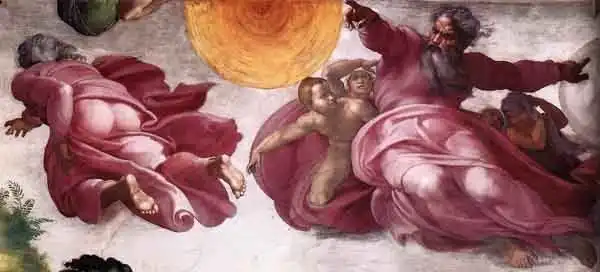
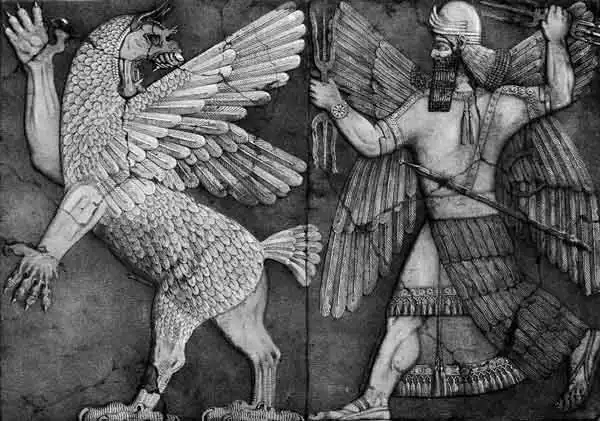
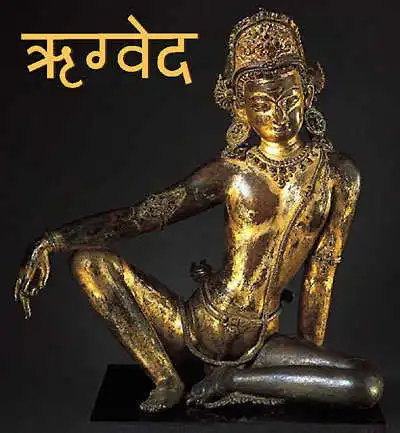
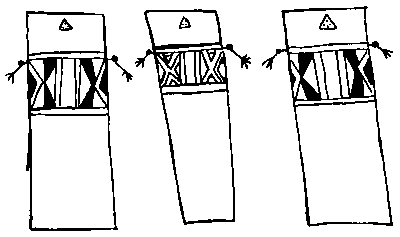
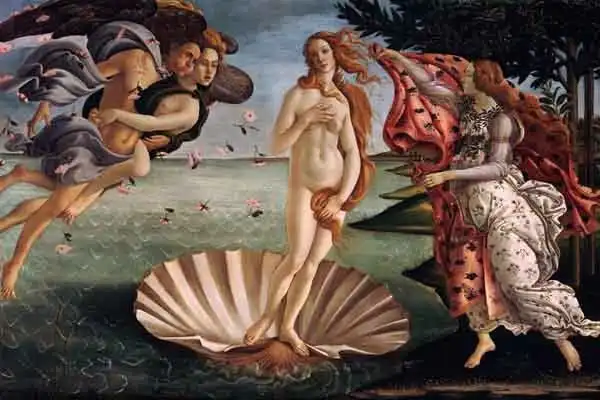
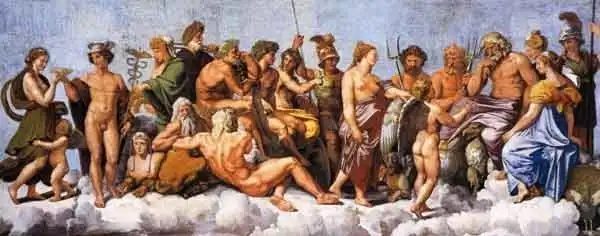

 Cosmos of the Ancients
Cosmos of the Ancients Life Energy Encyclopedia
Life Energy Encyclopedia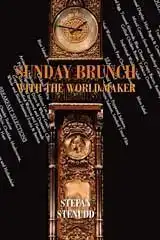 Sunday Brunch with the World Maker
Sunday Brunch with the World Maker Fake Lao Tzu Quotes
Fake Lao Tzu Quotes